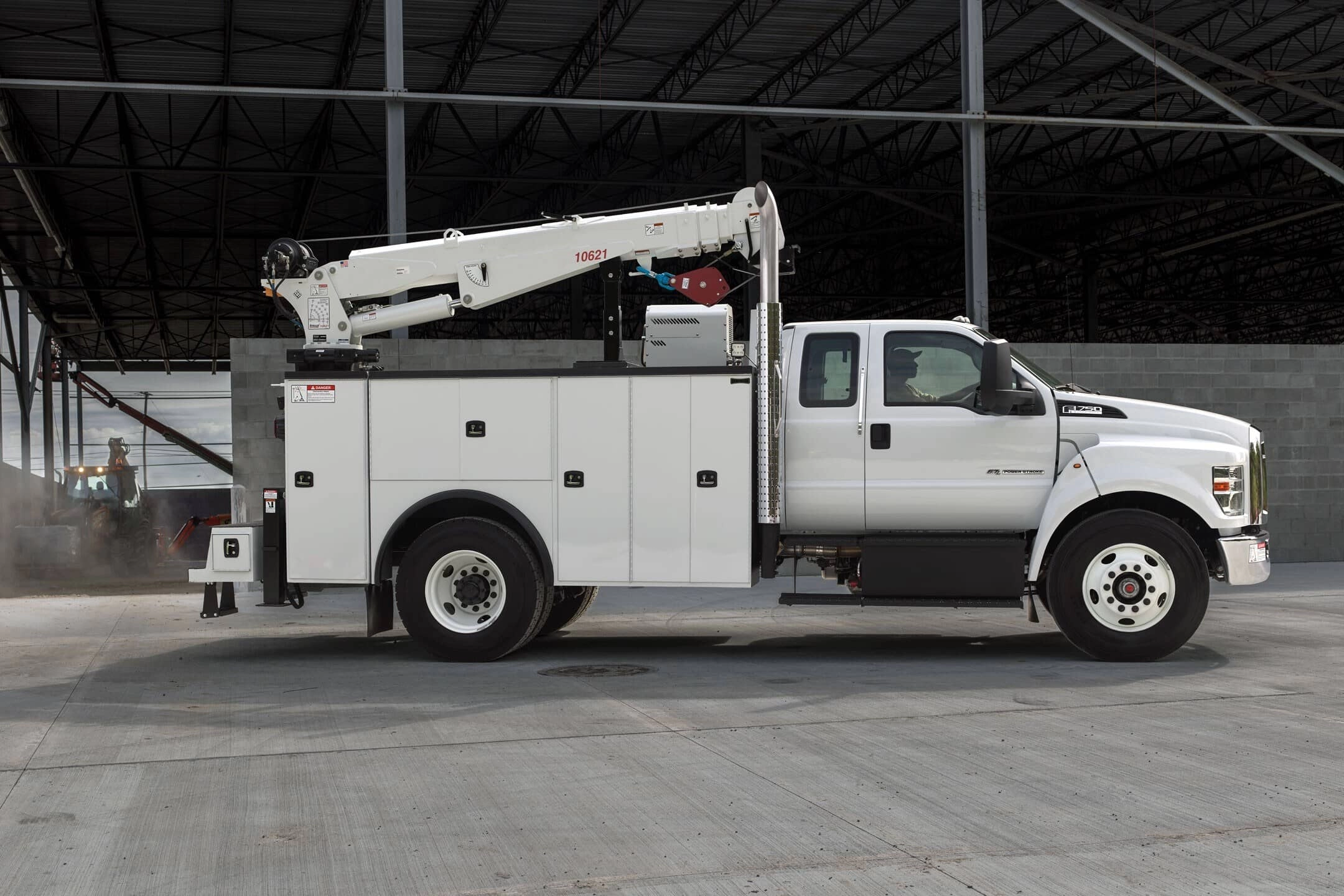Factors to Consider When Buying a Truck: A Comprehensive Guide
February 06, 2025 - 8:13:21 am

Buying a truck is a significant investment, whether you're a business owner needing a workhorse for heavy hauling or an individual seeking a versatile vehicle for both work and personal use. With a wide range of options available from manufacturers like Ford, Peterbilt, and Kenworth, making the right choice can feel overwhelming. This comprehensive guide outlines the essential factors to consider when buying a truck, ensuring you make an informed decision that aligns perfectly with your needs and budget.
1. Define Your Needs and Intended Use:
Before you even start browsing truck models, clearly define your intended use. This is the foundation of your truck-buying decision. Ask yourself:
- What will the truck primarily be used for? (e.g., hauling cargo, towing trailers, off-roading, personal transportation)
- What type of cargo will I be carrying? (e.g., construction materials, equipment, livestock, personal belongings)
- How often will I be using the truck? (Daily, weekly, occasionally?)
- What type of terrain will I be driving on? (Highway, city streets, off-road trails?)
- How many passengers will I need to accommodate regularly?
2. Budget and Financing:
Establishing a realistic budget is crucial. Consider not just the initial purchase price, but also:
- Down payment: A larger down payment can lead to lower monthly payments and less interest paid over the life of the loan.
- Financing options: Explore loan options from various lenders, including banks, credit unions, and dealerships like Wallwork Truck Center. Compare interest rates, loan terms, and any associated fees.
- Insurance costs: Factors in the cost of truck insurance can vary depending on the truck type and your driving history.
- Maintenance and repair costs: Consider the long-term costs of maintaining and repairing your truck. Some models may have higher maintenance requirements than others.
- Fuel costs: Fuel is a significant ongoing expense. Consider the fuel efficiency of different models and factor in current and projected fuel prices.
3. Payload and Towing Capacity:
- Payload capacity: This refers to the maximum weight of cargo the truck can safely carry in its bed. Determine the weight of your typical loads to ensure the truck you choose has sufficient payload capacity.
- Towing capacity: This is the maximum weight the truck can safely tow. If you plan to tow trailers, boats, or other heavy loads, ensure the truck has the necessary towing capacity. Consider both the trailer weight and the tongue weight (the weight the trailer exerts on the hitch).
4. Truck Type and Configuration:
- Light-duty trucks: These trucks, like the Ford F-150, are versatile and suitable for a mix of personal use and light hauling.
- Heavy-duty trucks: Trucks like the Ford F-250, F-350, F-450, and Kenworth T880 are built for demanding tasks, offering higher payload and towing capacities.
- Cab configuration: Choose between regular cab, extended cab, and crew cab options based on your passenger needs.
- Bed length: Select a bed length that accommodates your typical cargo.
- Drivetrain: Consider whether you need a 4x2 (rear-wheel drive) or 4x4 (four-wheel drive) drivetrain. 4x4 is beneficial for off-road driving and navigating challenging weather conditions.
5. Fuel Efficiency:
Fuel efficiency is a crucial factor, especially for frequent drivers. Consider:
- Engine type: Diesel engines are often more fuel-efficient for heavy-duty trucks and towing applications, while gasoline engines may be suitable for lighter-duty use.
- Aerodynamics: Trucks with more aerodynamic designs can often achieve better fuel economy.
- Driving habits: Aggressive driving can significantly reduce fuel efficiency.
6. Driver Comfort and Ergonomics:
For those who spend long hours behind the wheel, driver comfort is essential. Consider:
- Seat comfort and adjustability: Ensure the driver's seat offers adequate support and adjustability.
- Cab space and layout: A spacious and well-designed cab can enhance driver comfort and reduce fatigue.
- Climate control: A reliable climate control system is essential for maintaining a comfortable cab temperature.
- Technology and infotainment: Features like navigation, Bluetooth connectivity, and entertainment systems can make long drives more enjoyable.
7. Safety Features:
Prioritize safety by considering trucks equipped with the following:
- Advanced driver-assistance systems (ADAS): Features like lane departure warning, automatic emergency braking, blind-spot monitoring, and adaptive cruise control can significantly enhance safety.
- Airbags: Ensure the truck has adequate airbags for all occupants.
- Stability control: This system helps prevent loss of control in challenging driving situations.
8. Research and Test Drive:
- Read reviews: Gather information from reputable sources like automotive publications and online reviews.
- Visit dealerships: Visit dealerships like Wallwork Truck Center to see the trucks in person and talk to sales representatives.
- Test drive multiple models: Test driving allows you to experience the truck's performance, handling, and comfort firsthand.
9. Consider Resale Value:
Trucks, especially from reputable brands like Ford, Peterbilt, and Kenworth, tend to hold their value well. Consider the potential resale value of the truck when making your purchase decision.
10. Partner with Wallwork Truck Center:
Wallwork Truck Center offers a wide selection of new and used trucks from leading manufacturers. Our knowledgeable sales team can help you navigate the truck-buying process, answer your questions, and find the perfect truck to meet your needs and budget. We also offer financing options and can assist with upfitting your truck with any necessary accessories or equipment.
By carefully considering these factors and partnering with Wallwork Truck Center, you can make a confident and informed decision when buying a truck. Your truck is an investment in your business or personal life, so take the time to choose wisely.

